Paul Freeman graduated from the U.S. Military Academy at West Point, Class of 1929. He retired in 1967 as a U.S. Army General.
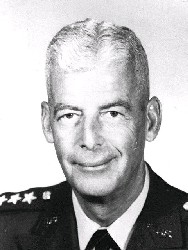
–
Cemetery:
Awards Received
-
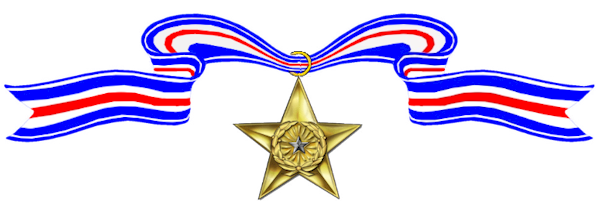
Silver Star
-
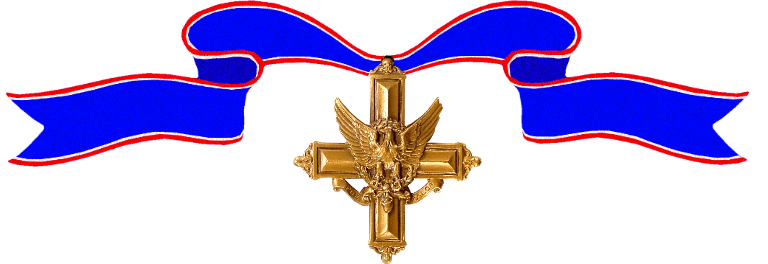
Distinguished Service Cross
-

Silver Star
-
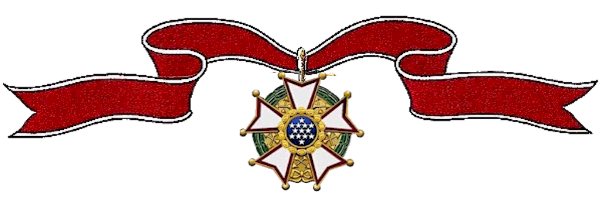
Legion of Merit
-
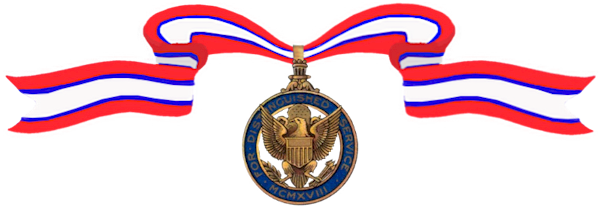
Army Distinguished Service Medal
-
Silver Star
Service:
United States ArmyRank:
Colonel (Infantry)Regiment:
23d Infantry RegimentDivision:
2d Infantry DivisionAction Date:
November 27 – 30, 1950
Headquarters, 2d Infantry Division, General Orders No. 38 (February 12, 1951)The President of the United States of America, authorized by Act of Congress July 9, 1918, takes pleasure in presenting a Bronze Oak Leaf Cluster in lieu of a Second Award of the Silver Star to Colonel (Infantry) Paul Lamar Freeman, Jr. (ASN: 0-17704), United States Army, for gallantry in action as Commanding Officer of the 23d Infantry Regiment, 2d Infantry Division, in action against an armed enemy from 27 November 1950 to 30 November 1950, in the vicinity of Kunu-ri, Korea. During that period the division was fighting a bitter withdrawing action to prevent encirclement by numerically superior enemy forces. Colonel Freeman’s regiment was given the mission of conducting rear guard actions to cover the withdrawal of the remainder of the division. Throughout the period he placed himself well within range of hostile automatic weapons and mortar fire to insure first hand knowledge of the friendly and enemy situation. On the night of 27 November 1950, Colonel Freeman, with complete disregard for his own safety, personally directed the deployment of the rear guard elements. His presence coupled with his composure under fire served to inspire his men to such heights that they successfully fought off repeated fanatical attacks from enemy forces overwhelmingly superior to them in numbers. Again on 30 November 1950, after all other elements of the division had withdrawn from the Kunu-ri area, and it appeared impossible to extricate his regiment without sustaining almost total loss of personnel and equipment, Colonel Freeman planned and supervised the execution of a daring maneuver which caught the enemy unaware and saved the regiment from certain annihilation. Throughout these operations, Colonel Freeman’s coolness under fire and his magnificent example of leadership instilled the confidence in h is men necessary for the successful execution of the most difficult of military operations. Colonel Freeman’s gallantry and great tactical ability during these engagements were in keeping with the highest traditions of the Armed Forces of the United States.
-
Distinguished Service Cross
Service:
United States ArmyRank:
Colonel (Infantry)Regiment:
23d Infantry RegimentDivision:
2d Infantry DivisionAction Date:
January 31 – February 15, 1951
Headquarters, EIGHTH U.S. Army, Korea, General Orders No. 379 (June 1, 1951)The President of the United States of America, under the provisions of the Act of Congress approved July 9, 1918, takes pleasure in presenting the Distinguished Service Cross to Colonel (Infantry) Paul Lamar Freeman, Jr. (ASN: 0-17704), United States Army, for extraordinary heroism in connection with military operations against an armed enemy of the United Nations while serving as Commanding Officer of the 23d Infantry Regiment, 2d Infantry Division. Colonel Freeman distinguished himself by extraordinary heroism in action against enemy aggressor forces in the vicinity of the Twin Tunnels area south of Chipyong-ni, Korea, during the period from 31 January 1951 through 15 February 1951. On 31 January 1951, Colonel Freeman was ordered to move his regimental combat team to the vicinity of the Twin Tunnels area south of Chipyong-ni and prevent the enemy from occupying the area. Colonel Freeman, with two battalions, entered the Twin Tunnels area without effecting contact with the enemy in the late afternoon of 31 January 1951. Realizing that the enemy forces were not yet emplaced, he deployed his troops in a tight defensive perimeter for the night. At 0450 hours on 1 February 1951, the enemy struck, pressing the attack with such fury that the regimental lines were penetrated in two places. The fighting was intense and the issue hung in the balance throughout the day; however, under the skillful leadership and personal example Colonel Freeman, the task force finally succeeded in routing the enemy at bayonet point, shattering two regiments of the 125th Chinese Communist Division. When the hostile force had been dispersed, 2,855 enemy dead were counted in front of the regimental positions. Reorganizing the combat team, Colonel Freeman led his command forward and occupied positions surrounding the town of Chipyong-ni, a critical point in the United Nations defense line. On the night of 13 February 1951, the enemy struck those positions with overwhelming fury, employing five divisions in the assault. For forty-eight hours the enemy pressed the attack, striking at all sides of the friendly perimeter and placing intense mortar end artillery fire on the positions. Skillfully directing the defense and personally exposing himself to the intense hostile fire to restore breaks in the line, Colonel Freeman so inspired his troops that they successfully routed the fanatically superior hostile force and counted over 5,000 enemy casualties surrounding their positions at the conclusion of the engagement. Although wounded in the final phase of the engagement, he reorganized the combat team and deployed it in defense of the secured area. The extraordinary heroism displayed by Colonel Freeman on this occasion reflects the greatest credit on himself and is in keeping with the high traditions of the military service.
-
Silver Star
Service:
United States ArmyRank:
Colonel (Infantry)Regiment:
23d Infantry RegimentDivision:
2d Infantry DivisionAction Date:
September 3, 1950
Headquarters, 2d Infantry Division, General Orders 117 (1950)The President of the United States of America, authorized by Act of Congress July 9, 1918, takes pleasure in presenting the Silver Star to Colonel (Infantry) Paul Lamar Freeman, Jr. (ASN: 0-17704), United States Army, for gallantry in action as Commanding Officer of the 23d Infantry Regiment, 2d Infantry Division, in action against an armed enemy on 3 September 1950 in the vicinity of Changnyong, Korea. On that date the 3d Battalion of his regiment had positions astride a road which was serving as the Main Supply Route for enemy forces in that area. The enemy during the preceding several days had been probing our defensive lines by repeated attacks in strength at various positions and had created weak points in the line. By 3 September 1950 it appeared that an enemy breakthrough of critical proportions was imminent along the line held by a rifle company of his regiment. Upon receiving intelligence of this situation, Colonel Freeman immediately went forward to the threatened area. Here he fearlessly and repeatedly exposed himself to the hostile artillery and small arms fire which fell all about him. Moving from position to position he personally reorganized the disheartened troops, who observing their commander’s fearless actions, were inspired to greater efforts. Under his superb leadership the inspired troops rallied and stiffened, hurling back the enemy assault. As a result of Colonel Freeman’s intrepid leadership and immediate grasp of a critical situation, the enemy was delayed until his regiment could launch a counterattack. The gallantry, high devotion to duty, and exceptional tactical ability displayed by Colonel Freeman reflect great credit upon himself and fully uphold the finest traditions of the military service.
-
Legion of Merit

United States Military Academy Register of Graduates(Citation Needed) – SYNOPSIS: Colonel (Infantry) Paul Lamar Freeman, Jr. (ASN: 0-17704), United States Army, was awarded the Legion of Merit for exceptionally meritorious conduct in the performance of outstanding services to the Government of the United States from 1944 to 1945. The singularly distinctive accomplishments of Colonel Freeman and his dedicated contributions in the service of his country reflect the highest credit upon himself and were in keeping with the highest traditions of the United States Army.
-
Army Distinguished Service Medal

Department of the Army, General Orders No. 33 (July 26, 1967)The President of the United States of America, authorized by Act of Congress July 9, 1918, takes pleasure in presenting the Army Distinguished Service Medal to General Paul Lamar Freeman, Jr. (ASN: 0-17704), United States Army, for exceptionally meritorious and distinguished services to the Government of the United States, in a duty of great responsibility, during the period from May 1962 to June 1967. The singularly distinctive accomplishments of General Freeman and his dedicated contributions in the service of his country reflect the highest credit upon himself and were in keeping with the highest traditions of the United States Army.

